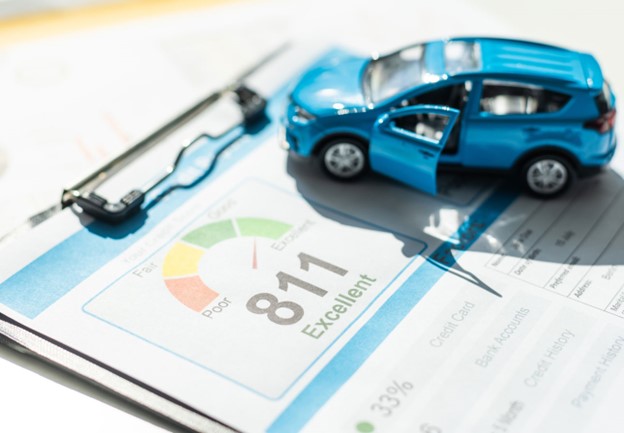
How Do You Determine If You Should Refinance Your Car?
Not sure where to start with refinancing your auto loan? Our comprehensive auto refinance guide breaks it down step by step. You'll learn what auto refinancing actually means, where to find the best refinance deals, how it can save you money, and when it's the right time to refinance. From checking your credit score and comparing lenders to gathering documents and submitting your application. Whether you're aiming to lower your interest rate, reduce your monthly payment, or pay off your loan faster, this guide gives you the tools to make an informed decision.
What Does It Mean to Refinance a Car?
Are you considering refinancing your car, but you aren’t sure how it all works? The process of refinancing means you are obtaining a new loan to pay off an existing loan. Most car buyers who refinance their vehicle are looking to either lower their monthly payment or reduce the overall debt owed on a vehicle.
What Requirements Are Needed to Refinance?
Essential Documents Include:
- Proof of Income: This could be pay stubs, W-2 forms, tax returns, or other documentation showing your ability to repay the loan.
- Proof of Car Insurance: A copy of your car insurance policy or insurance card.
- Vehicle Information: This includes the vehicle's make, model, year, VIN, and current mileage. You may also need a photo of the odometer.
- Driver's License: As a form of identification.
- Current registration for the Auto.
Also Have:
- Remaining Balance: The amount you still owe on your current loan plus the payoff information, account number, and address for payment.
- Interest Rate: The interest rate you're currently paying, to ensure you are getting a better rate with the refinance.
- Loan Term: The length of your current loan.
What Credit Score Do I Need to Refinance My Car?
Make sure your credit score is accurate and up to date. You can request a free credit report to see if it’s high enough to get you the best interest rate. This check is considered a soft inquiry, which means it won’t affect your credit score.
Most financial institutions recommend having 660 or higher for the best opportunity at a low interest rate.
- 660 or higher will likely qualify you for the lowest rates
- 600 – 659 may increase your chances of approval, but your rates may be higher.
- Below 600 will still have some lenders working with you, but we advise finding ways to improve your score to receive lower rates in the future.
How Do You Refinance a Car Loan?
Before considering your refinance, review your current loan agreement to identify any prepayment penalties or restrictions. Prepayment penalties apply when the borrower pays off the loan before the term’s end date.
How Would You Decide Between Auto Loan Offers?
When researching refinancing offers between different financial institutions, here are some things to look out for:
- Annual Percentage Rate (APR) – This is the interest rate plus any fees or additional costs associated with the loan for the year. The lower the percentage, the less you’ll pay in interest.
- Length of the Loan – The number of months that make up the term of the loan. The longer the term, the more you’ll pay in interest.
How Old Can a Car be to Refinance?
Depending on the age and mileage of the vehicle, refinancing may be limited when compared to a new vehicle. Most lenders limit financing to automobiles older than 10 years old and with mileage more than 150,000 miles.
Some financial institutions specialize in refinancing older vehicles, but the interest rates may be higher and the loan terms shorter. Other factors include having a clear title (no salvage or rebuild titles), and the vehicle meets a minimum value of around $5,000.
How to Refinance a Car with Negative Equity
If you owe more on the car than it’s worth, refinancing can be tough, but not impossible. To better understand your vehicle’s value, check websites like Kelley Blue Book or JD Power. You can also use the LTV (Loan to Value) calculation which is LTV = (Loan Amount / Property Value) * 100.
The biggest hurdle for securing a new loan is that negative equity. Some lenders will roll that negative equity into the new loan, increasing the loan amount and monthly payments. You can also try paying off some or all the negative equity upfront which reduces the amount you need to borrow.
How Many Times Can You Refinance a Car?
There’s no legal limit on how many times you can refinance a car. As long as you get approved by a lender, you can keep doing it. But just because you can, doesn’t mean you should. Only refinance if it offers a financial benefit.
How Much Does It Cost to Refinance a Car?
Refinancing is all about saving money, but there are costs depending on the lender. Typical costs include:
- Application fee
- Title transfer fee
- Prepayment penalty
Some lenders may roll small fees, including the above, into the new loan. The real cost comes from the interest over time, especially if you extend the loan terms. To save money, you need to understand the fees and compare them to a better rate and/or a shorter term.
How Much Can I Save By Refinancing?
How much you save by refinancing depends on your current interest rate, the new loan rate, the loan balance, and the loan term. Here’s a simple example assuming the borrower refinances after one year:
| Original Loan | Refinance Loan | |
| Loan Amount | $25,000.00 | $21,000.00 |
| APR | 8.00% | 5.00% |
| Loan Term | 60 months | 48 months |
| Monthly Payment | $507.00 | $484.00 |
| Total Interest Paid | $5,400.00 | $2,200.00 |
Looking at the above example, the borrower would be able to save $3,200.00 in interest over the life of the loan by getting a better rate while maintaining the same loan term after one year of making payments on the original loan.

When Should I Refinance My Car?
Are auto loan interest rates going down and all you can think about is your current loan? Before you decide to refinance, make sure you understand that there are both good and bad reasons to do so. There’s no universal rule about when you should refinance, but it comes down to your current loan details and your financial situation.
- Lower monthly payment: If you bought your car when interest rates were high, refinancing can save you money if interest rates have dropped.
- Your credit score has improved: You’ve improved your financial situation since buying a car and a lower credit score prevented you from getting a lower rate.
- Pay off the loan sooner: If your income has increased since taking out the auto loan. Borrowers don’t have to refinance to do this. They can increase the amount they’re paying each month if there’s no prepayment penalty.
- Want to switch lenders: Either through better incentives from a different lender or your primary financial institution can consolidate loans from other places. Typically, credit unions can offer lower interest rates and more flexibility.
- Struggling to make the monthly payments: Refinancing can help you extend the terms of the auto loan.
- Need extra cash: Borrowers can use the equity in their vehicle for a cash-out auto refinancing option, which means taking out a higher loan amount when compared to the current loan and getting the difference in cash.
When Refinancing May Not Be a Good Idea
Rates might be going down, but that doesn’t mean refinancing is a good idea. If you purchased your vehicle less than 6 months ago, your credit score is still recovering from the hard inquiry performed on it from the purchase of the vehicle. Refinancing would come with another hard inquiry on your credit report, further lowering your score. Also, remember to check your credit score to make sure it hasn’t decreased since the initial financing after the 6-month period.
The Car’s Value & Age
You’ll also want to assess the value of your vehicle and its age. Refinancing might not be a good idea if you owe more on the car than it’s currently worth. Or if the car is at a certain age, it might not qualify for refinancing.
Current Loan Term is Almost Finished
If you’re about to pay off the loan, you’re likely better sticking with your current loan offer than refinancing the small portion that’s left. Especially if your current loan includes prepayment penalties or other fees.
It’s always a good idea to make sure that refinancing an auto loan will save you money and not add more to your debt. You can use our auto loan calculator to get a better idea of the financial obligation involved with refinancing compared to your current loan terms.
The Total Amount Financed – The amount of money you’ll borrow from the lender, which can affect your interest rate and loan term.
How Soon Can I Refinance a Car Loan?
You can technically refinance a car loan as soon as your lender allows it, but it’s good to wait at least 60 days after getting the original loan. The 60 days give:
- Your vehicle title enough time to transfer
- Enough time to show on-time payment history
- Your credit time to rebound after the hard inquiry
Some lenders have additional requirements like a loan balance that’s over a certain amount or for the car to meet certain age and mileage limits.
Where Can I Refinance My Car?
The best place to refinance your car depends on your credit score, loan amount, and your goals related to the refinance (lower rate, shorter term, lower payment).
- Credit Unions: Usually they offer the lowest interest rates, lower fees, and are more flexible with credit scores. You must be a member, but joining is easy.
- Banks: A good choice for existing bank customers with stronger credit scores.
- Online Lenders: Offer convenience and quick approvals for a faster turnaround. They also make it easy to compare rates.
Can I Refinance with the Same Financial Institution?
Yes, you can finance your car with the same financial institution that you’re currently borrowing from if they allow it. Ask your lender if they offer internal refinancing or loan modifications. Even if your lender agrees, it’s smart to check rates from other banks, credit unions, and online lenders for better deals.
Refinancing With a Credit Union
If you’re having a difficult time figuring out if you should refinance your current auto loan agreement, start with our monthly car payment calculator to work out the financial details. If you still have questions, talk to the auto loan express team at Community First Credit Union by calling 904.224.9077. We’ll help you review your financial situation so you can make an educated decision on whether refinancing is right for you.
Discover More Auto Financing Tips from Community First
- How to Qualify for a Car Loan
- How Much Car Can You Afford?
- How to Lower Your Car Payment
- Loan Terminology to Know
- Factors that Affect Auto Loan Rates
- RV Financing in Florida









